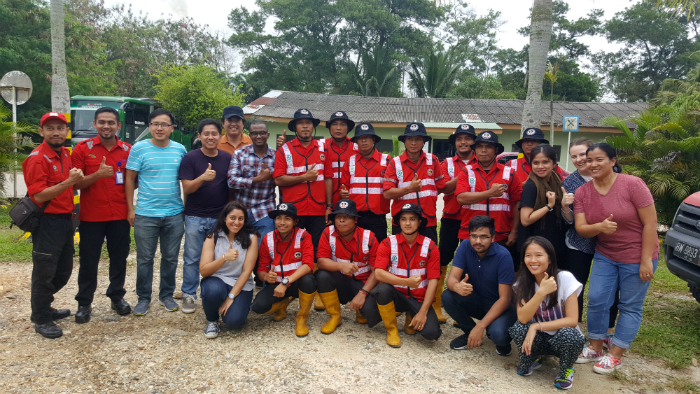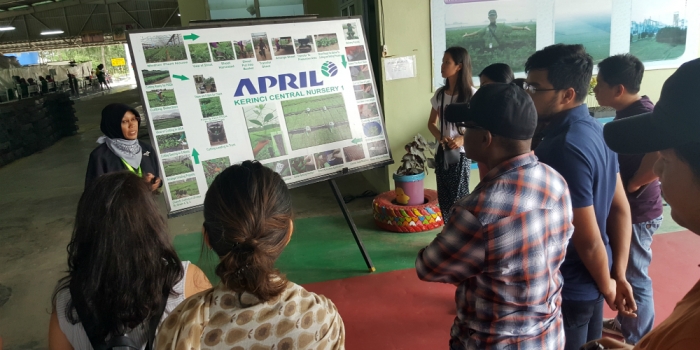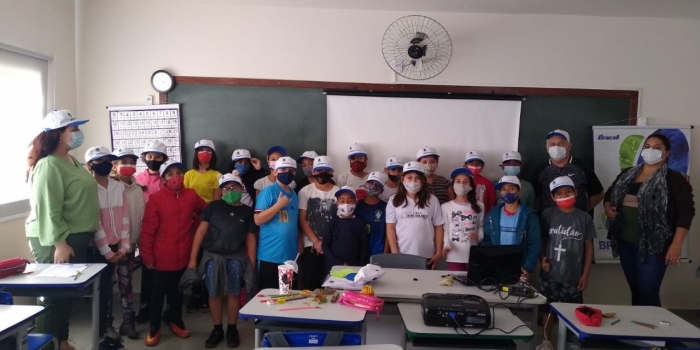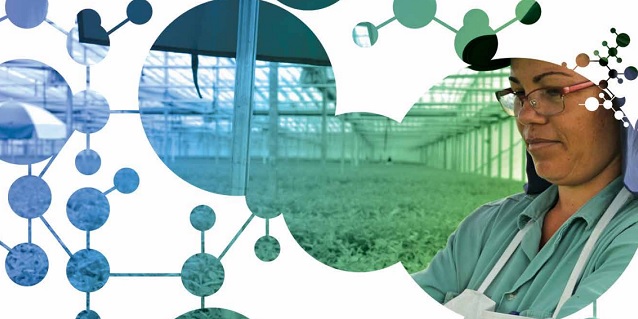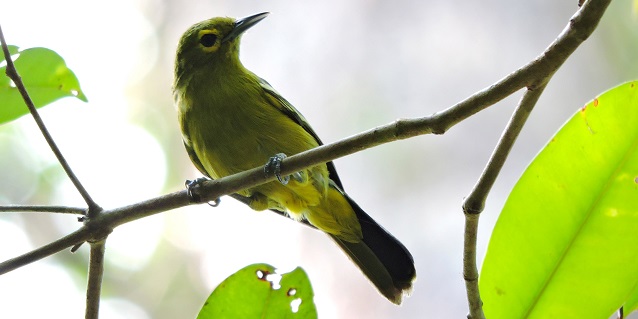On 20 March, ten students from the Lee Kuan Yew School of Public Policy (LKYSPP), National University of Singapore (NUS) visited APRIL’s operations in Pangkalan Kerinci, Riau Province, Indonesia. The trip was part of the students’ class on “Moral Reasoning & the Policy Process”, a module on the challenges, justifications and implications of policy positions on private and public goods. The module is facilitated by Assistant Professor (AP) Leong Ching who also accompanied the students in Kerinci.
The day began at RGE Technology Centre which gave them the history of RGE group as well as its vision to be one of the largest, best-managed and sustainable resource-based groups, creating value for the community, country, climate, customer and company. Founded by Chairman Sukanto Tanoto in 1973, RGE is united by a common purpose to improve lives by developing resources sustainably.
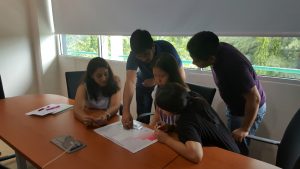
Tim Fenton, Head of Sustainability Operations in Kerinci, gave an overview of APRIL’s sustainability framework and commitments. He discussed the company’s Production-Protection Model, an approach that was featured in an LKYSPP case study published earlier this year.
Craig Tribolet, Forest Protection Manager, then discussed the company’s approach to actively engage communities via its Fire Free Village Programme (FFVP). Craig facilitated a group activity where students were asked to prioritise both causes and possible solutions to the fire and haze issue. Students then debated which factors should be addressed first and what approaches should be adopted for long-term solutions.
Hosting lunch for participants, APRIL Chairman Bey Soo Khiang expressed his thanks to LKYSPP for the school’s continued interest to understand on-the-ground realities and challenges. In November 2016, a group of 55 LKYSPP viewed APRIL’s and fellow RGE business group-Asian Agri’s operations and initiatives, as part of the school’s flagship Governance Study Project. Bey shared the company’s commitment to long-term sustainable development, including the ongoing project to align its programmes with the UN Sustainable Development Goals or UN SDGs.
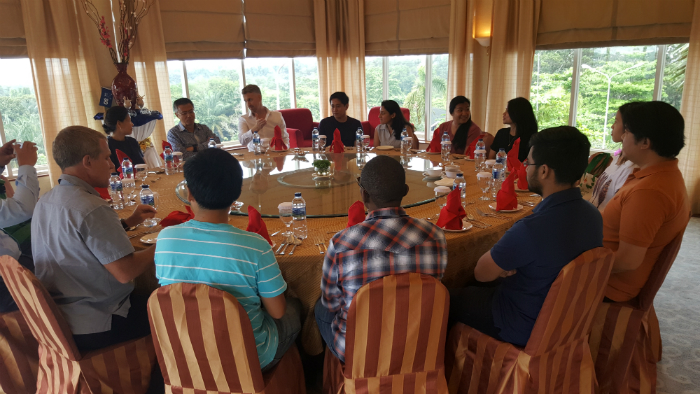
After lunch, a presentation on the Riau Ecosystem Restoration (RER) project was given by RER Head, Brad Sanders. Apart from sharing the recent results of a biodiversity and bird report, Brad shared about upcoming activities and initiatives to further conserve, protect and restore ecologically important peat forests in the Kampar Peninsula.
The group then went to Kerinci Central Nursery, one of five central nurseries that provide millions of seedlings for APRIL operations. They went to the Community Development Centre where representatives from surrounding communities are given weeks-long training to plant agricultural crops, as well as manage small fisheries and livestock. A short trip to the batik centre showcased the works of women who have been trained by APRIL in the art of batik-making as a means of providing extra income for their families.
The day concluded at one of APRIL’s fire posko, where they met the brave firemen who are committed to keeping both the plantations and the surrounding communities fire-free. Sharing her perspective, AP Ching said, “We are grateful for APRIL’s open engagement on complex issues. It is with enlightened corporations that students can learn about the realities of policy implementation, and the large impact the private sector can make on making growth sustainable and fair.”
